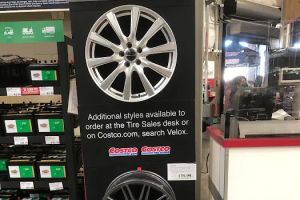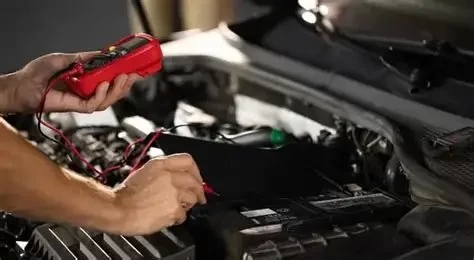- power-outlet-not-working—common-causes-and-solutions
- blown-fuses-and-electrical-issues—how-to-diagnose-and-fix
- loose-connections-or-damaged-sockets—signs-and-prevention
- overload-protection-and-usage-errors—understanding-your-device-limits
- real-life-breakdowns—when-a-dead-outlet-became-a-big-problem
- where-to-get-help—trusted-solutions-from-rescue-towing
1. Power Outlet Not Working — Common Causes and Solutions
It’s a frustrating moment: you plug in your phone charger or GPS device into your car’s power outlet — and nothing happens. While it might seem like a minor inconvenience, a non-functioning car power outlet can quickly lead to bigger issues, especially if you rely on it for dashcams, tire inflators, or emergency equipment.

IMC powered by Parts Authority
139 Lafayette Dr, Syosset, NY 11791, USA
1.1 The Outlet Is Dead — But Why?
Many drivers first assume the accessory itself is faulty, but more often the problem lies within the outlet or its connection to the vehicle’s electrical system. It could be as simple as a tripped fuse or as complex as a wiring fault. Recognizing these issues early helps you avoid further damage or unexpected breakdowns.

Costco Tire Center
43621 Pacific Commons Blvd, Fremont, CA 94538, USA
1.2 Quick First Step: Try Another Device
Testing a different device — one you know works — helps you rule out whether the outlet is the issue. If nothing powers on, it’s time to dig deeper into your car’s electrical system.
2. Blown Fuses and Electrical Issues — How to Diagnose and Fix
One of the most common causes of a failed car power outlet is a blown fuse. Each outlet is protected by a fuse that breaks the circuit when too much current flows through it. This prevents your vehicle’s wiring from overheating and catching fire — but it also leaves you with a dead port until the fuse is replaced.
2.1 How to Identify the Correct Fuse
Check your owner’s manual for the fuse box diagram. Typically, the cigarette lighter or 12V outlet fuse is labeled "ACC" or "Power Outlet." Use a fuse tester or visually inspect the fuse for a broken filament.
2.2 Replacing the Fuse Safely
Always replace a blown fuse with one of the same amperage. Using the wrong fuse can cause serious damage to your vehicle. If the fuse blows again shortly after replacement, you likely have an underlying short circuit or power surge issue that needs professional attention.
3. Loose Connections or Damaged Sockets — Signs and Prevention
Over time, frequent plugging and unplugging of devices can loosen the outlet or wear down the contact points inside. You might notice your charger only works when held at a certain angle, or not at all. This is a sign that your outlet may need repair or replacement.
3.1 Corrosion and Debris Inside the Socket
Dust, crumbs, and moisture can get inside the socket, especially in vehicles often used in rugged or outdoor environments. Corrosion on the metal contacts can prevent proper conductivity, making the outlet unreliable or completely inoperable.
3.2 Cleaning the Socket
Turn off your car before attempting to clean. Use a soft brush or a small amount of rubbing alcohol on a cotton swab to remove debris or oxidation. Never use metal tools that could short the circuit or damage components.
4. Overload Protection and Usage Errors — Understanding Your Device Limits
Modern vehicles include overload protection systems to safeguard against too much current draw. Plugging in devices that exceed the amp rating of the outlet — like high-power inverters or electric coolers — can cause temporary or permanent shutdowns of the power port.
4.1 Check the Wattage and Amperage
Know your outlet’s limitations. Most car power outlets are rated for 120W or 10A. Devices drawing more than that can trip safety circuits. Always check the specifications before connecting any new equipment.
4.2 Use Dedicated Ports for High-Draw Devices
If you need to run heavy-duty accessories, consider having a dedicated power line installed with a proper fuse and gauge wiring. This reduces risk and ensures reliable power delivery to your essential gear.
5. Real-Life Breakdowns — When a Dead Outlet Became a Big Problem
In early 2023, a traveler on a solo road trip through Nevada shared their story online: they lost phone power because their USB adapter failed and the car outlet wouldn’t work. With no GPS and little cell signal, they took a wrong turn and spent nearly 10 hours stuck in the desert until a passerby spotted their hazard lights.
In another case, a delivery driver’s portable tire inflator wouldn’t power on due to a blown fuse in the power outlet. That delay cost him a full day’s work. These real-world examples show how a small electrical issue can quickly spiral into a costly or even dangerous situation.
6. Where to Get Help — Trusted Solutions from Rescue & Towing
If you’re unsure about the source of your power outlet problem or need expert repairs, Rescue & Towing offers reliable diagnostics and services for all types of vehicle electrical issues. Whether it’s replacing a fuse, rewiring a damaged socket, or installing dedicated power sources for your gear, their specialists are equipped to handle it.
6.1 Why Choose Professional Help
DIY fixes can help in a pinch, but when the problem is deeper — like a short circuit or overloaded system — it’s safer and more cost-effective to trust professionals. Rescue & Towing provides mobile service and tailored recommendations so you’re never left powerless on the road.
Your car’s power outlet might seem like a minor feature, but it supports your safety, navigation, and convenience. Keep it working — and know where to turn when it’s not.





























